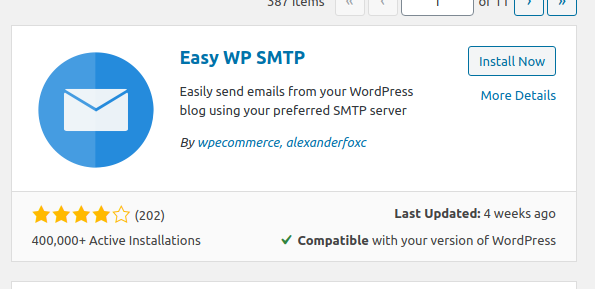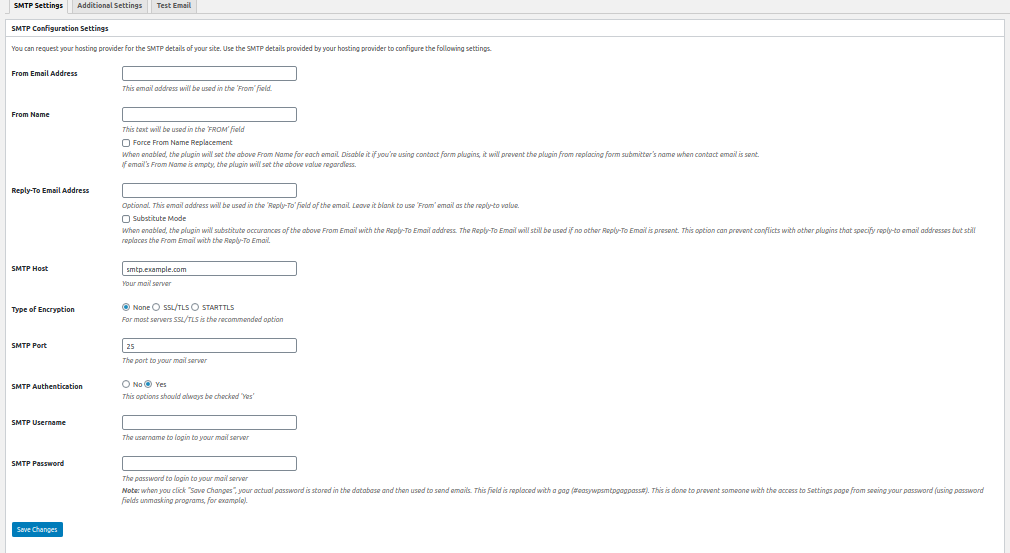How to setup SMTP emails in WordPress
WordPress is built using the PHP mail function, however over the years the most used method is SMTP. If you are trying to set SMTP and you are experiencing issues with it this tutorial will provide you with a detailed description on how to set it for your website.
The first thing you should consider before proceeding with this task is the creating of an email account if you haven`t. Creating an email account can be done with a few steps. First, access your cPanel and go to the Email accounts tab where you will see the “Create New” button.
Make sure to save the password for the created email account so you could configure the SMTP later

After that access the admin area of your website(https://yourdomain.com/wp-admin) and go to Plugins → Add New and install the Easy WP SMTP plugin

Once you install and activate the plugin you have to configure it. To do so go to Plugins → Installed plugins and locate the newly installed plugin and click on Settings. This will redirect you to the next page

The fields from the screenshots should be filled as followed:
From email address: Fill the full name of the email address which you want to use([email protected])
From Name: Fill this field with the name from which the emails will be send
Reply-To Email Address: this field is optional and if you fill it it will be visible in your emails
SMTP Host: In this field you should type the hostname of the mail service provider. It is always best to contact the mail service provider to update you with the correct value
Type of Encryption: It is recommended to set it to SSL/TLS
SMTP Port: If you have set SSL/TLS on the above option, the port here should be 465
SMTP Authentication: Thi should always be set to “Yes”
SMTP Username: Type the full name of the email account
SMTP Password: Type the password for the email account from above.
After you fill the fields it is time to test if everything is properly working. To do so go to Test Email tab:

If everything is configured correctly and you send an email the plugin will display a message. If any issues appear it will again show a message that the sending was not successful.
